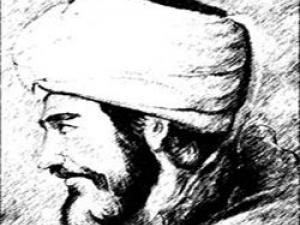Short Description
Ibn Khaldun was a Muslim, a member of Islamic community, and lived in an age when Islamic thinking was its highest caliber.
Ibn Khaldun was a Muslim, a member of Islamic community, and lived in an age when Islamic thinking was its highest caliber. While reading Muqaddimah we observe all the pages going to the end of the book are full of prayers to God; Ibn Khaldun ends even every small section in his book with a prayer, or a verse, or a hadith (the words of The Prophet Mohammad). However, this should not lead us to think that we had better to take it for granted, as an indicator of religiosity. The appropriateness of the selected words and verses are worth reflecting on it, but we still cannot claim that Ibn Khaldun is under the impact of his religious beliefs in this scientific book. B. C. Busch, at this issue, says that, “every section (indeed, nearly every long paragraph) concludes with a pious reference to God. The phrases … are followed by a modest apology for any mistakes or omissions and then the sentences”[1] These are a few examples: “God knows better.”[2] “God is wise and knowing.”[3] “God creates whatever he wishes”[4] However, Busch also says that these are of just customs and conventions, mentioned at the end of every section “demanded by the contemporary genre to attest to the author’s piety”[5]. Concomitant with this explanation, Bush states that it is not a right understanding of Ibn Khaldun, by labeling him as deist, and disregarding all the words related to Islam written in the book as ‘‘window-dressing’’ and for the sake of fitting in the valid norms of the Arab society of that period.[6]
It seems, therefore, Nathaniel Schmidt has misunderstood him, saying: “[a]ccording to him, history is the science that deals with the social phenomena of man’s life. By ascribing this discovery to Allah, he obviously did not mean to suggest that it came by special divine revelation, but simply that Allah had ordained that he should make it, since he realized that every science is the result of human observation and reflection”[7]. Contrary to this, Ibn Khaldun believes that God intervenes in our world and to the lives of people. In the Muqaddimah for instance, he states that “[c]auses continue to follow upon causes in an ascending order, until they reach the Causer of causes”. Accordingly, Busch states: “Ibn Khaldun’s own belief forces him to establish reservations, and important ones, to his own general theory. There is no explanation in the Muqaddimah for such events other than that of belief: they are visible evidence of the hand of God at work”[8].
stay tuned........
References:
[1] Busch, B. C., “Divine Intervention in the ‘Muqaddimah’ of Ibn Khaldun, History of Religions, Vol. 7, No. 4. (May, 1968), p. 318
[2] Ibn Khaldun, trans. by Rosenthal F., The Muqaddimah, 2nd edition, Princeton: Princeton University Press, 1967, p. 258
[3] Ibid, p. 260
[4] Ibid, p. 261
[5] Busch, B. C., “Divine Intervention in the ‘Muqaddimah’ of Ibn Khaldun, History of Religions, Vol. 7, No. 4. (May, 1968), p. 318
[6] Busch, B. C., “Divine Intervention in the ‘Muqaddimah’ of Ibn Khaldun, History of Religions, Vol. 7, No. 4. (May, 1968), p. 319
[7] Schmidt, N., Ibn Khaldun, Historian, Sociologist And Philosopher, New York: Ams Press, 1967, p. 17
[8] Busch, B. C., “Divine Intervention in the ‘Muqaddimah’ of Ibn Khaldun, History of Religions, Vol. 7, No. 4. (May, 1968), p. 326
source:
http://www.worldbulletin.net/ibn-khaldun/126297/ibn-khaldun-the-impact-of-his-belief-on-his-work






![نصيحتي لك: اذكر الله [1 / 12] نصيحتي لك: اذكر الله [1 / 12]](https://islamstory.com/images/upload/content_thumbs/1913613138ragheb-al-serjany-videos.jpg)


Comments
Send your comment